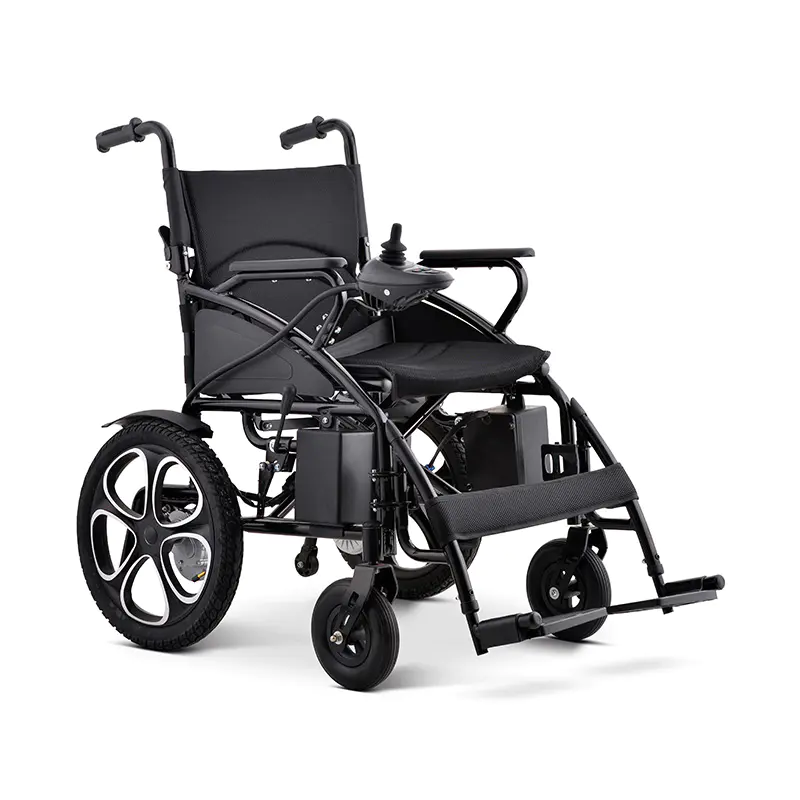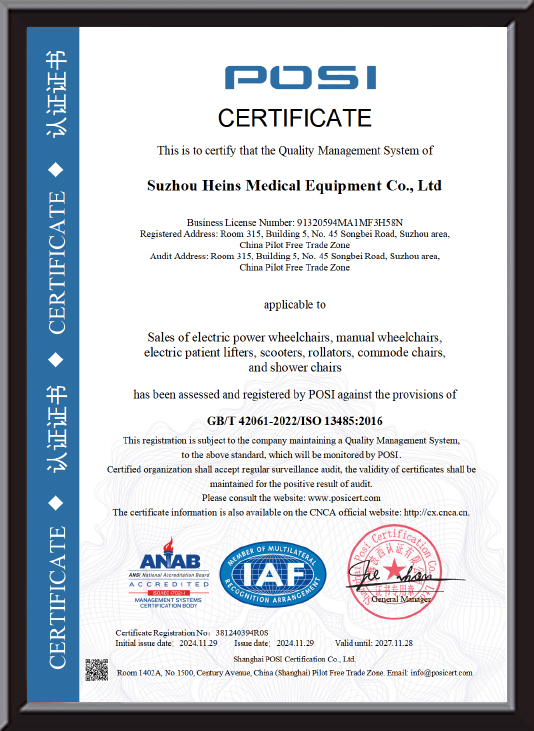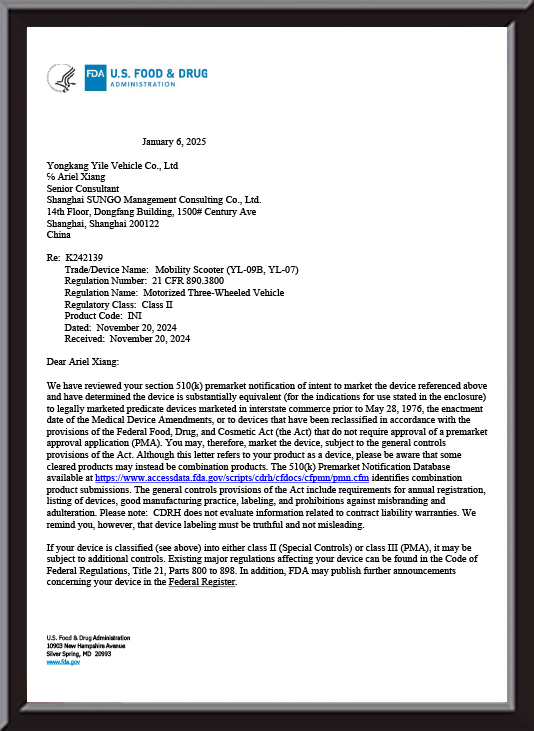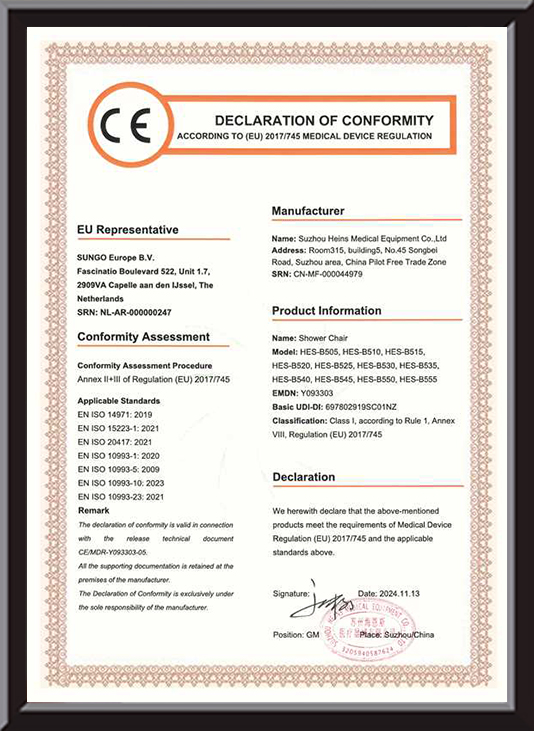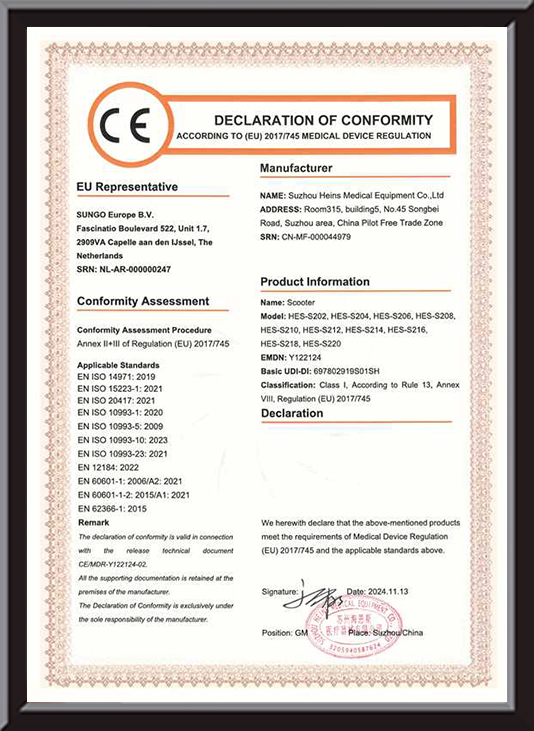Custom Portable Travel Power Electric Wheelchair Manufacturers
The lightweight but sturdy frame and unique folding design allow it to be folded in just seconds, instantly reducing its size so it fits easily into a car trunk, train luggage rack, or even airplane cargo hold, making it easy to travel with no hassle.
Despite its compact size, it's very powerful. Equipped with a high-performance battery, it has excellent endurance to meet the needs of daily short-distance travel. The powerful motor and flexible steering system handle both flat city streets and slightly sloped outdoor paths with ease. It's simple to operate and intuitive enough for anyone to get the hang of quickly.
For people with limited mobility who love to travel, this wheelchair is a great choice to help you achieve worry-free, comfortable travel.
-
Executive Summary In the domain of patient handling and mobility support, material selection is a central engineering decision impacting performance, ...
READ MORE -
Industry Background and Application Importance Global Mobility Needs and Travel Scenarios Mobility solutions play an essential role in enhancing the q...
READ MORE -
Industry Background and Importance of Application The aging global population and increasing demand for accessible healthcare mobility solutions have ...
READ MORE -
Industry Background and Application Importance The foldable electric wheelchair has become a critical mobility platform in healthcare, institutional, ...
READ MORE -
The aluminum alloy patient lifter is an essential device in modern healthcare settings, designed to assist in the safe transfer of patients with limit...
READ MORE
How to choose Portable Electric Wheelchair that meets frequent travel needs?
1. The core advantages of Portable Electric Wheelchair
Compared with traditional electric wheelchairs, the Portable Electric Wheelchair has significant advantages in many aspects. Modern products generally adopt lightweight design, and the weight of the vehicle is usually controlled within the range of 15-25kg. Take Suzhou Heins Medical Equipment Co., Ltd.'s flagship product as an example. It uses an aviation-grade aluminum alloy frame, weighs only 18kg, and is equipped with a one-click folding mechanism. The volume can be reduced by more than 60% after folding, and can be easily placed in the trunk of the car or air consignment. This design greatly improves users' travel freedom and allows them to seamlessly connect with various means of transportation.
In terms of intelligence, the latest generation of products are generally equipped with intelligent control systems, including touch-controlled operating panels, Bluetooth connection functions, etc. Some high-end models even have voice control functions. These innovations not only improve the convenience of use, but also greatly reduce the learning threshold for elderly users. In addition, modern Portable Electric Wheelchair generally uses lithium-ion batteries, which have the advantages of high energy density and long cycle life compared to traditional lead-acid batteries. A 48V 10Ah lithium battery equipped with a product exported to the European market can provide a range of 30km under standard operating conditions, fully meeting the travel needs of one day.
2. Meet the key functions of frequent travel
To achieve true portability, manufacturers are constantly innovating in materials science and mechanical structures. The use of new materials such as magnesium alloys and carbon fibers can significantly reduce the weight of the product, while the development of patented folding mechanisms greatly improves the ease of use. Taking Suzhou Heins Medical Equipment Co., Ltd.'s "three-fold" design as an example, users can complete the folding operation in 10 seconds. This humanized design details are crucial to the daily user experience.
Advances in battery technology have directly improved the user experience. The application of fast charging technology has reduced charging time by 50% compared to traditional methods, and the modular battery design is convenient for users to carry backup batteries to extend battery life. It is more worth mentioning that some high-end models have begun to apply energy recovery systems to recycle some energy during downhill or brake. This innovative design further improves energy utilization efficiency.
In terms of adapting to different usage environments, modern Portable Electric Wheelchair has developed a variety of professional models. The urban commuter model adopts a narrow body design, which is suitable for use in crowded environments such as shopping malls and subways; the all-terrain model is equipped with off-road tires and reinforced suspension, which can drive on complex roads such as park stone roads and gentle slopes; the medical rehabilitation model further integrates professional functions such as position adjustment and pressure dispersion. Some of Suzhou Heins Medical Equipment Co., Ltd.'s products use four-wheel independent suspension and 8-inch pneumatic tires to easily cope with obstacles below 5cm. This professional design greatly expands the use scenarios of the product.
3. In-depth analysis of applicable scenarios
The application scenarios of Portable Electric Wheelchair are constantly expanding. In daily urban commuting scenarios, product size, silent performance and anti-slip performance become key considerations. Market feedback shows that about 65% of urban users value "whether they can take public transportation smoothly", which prompts manufacturers to continuously optimize product passability and folding efficiency. For office workers or people who need regular medical treatment, an electric wheelchair with a width of no more than 60cm and operating noise below 50 decibels is often the best choice.
In long-distance travel scenarios, the aviation adaptability of the product is particularly important. The aviation-friendly design that complies with IATA transportation standards, safety specifications with battery capacity controlled within 296Wh, and chargers that support wide voltage inputs of 100-240V have become essential features for frequent travelers. A survey by a well-known travel forum showed that 82% of travelers using electric wheelchairs would prefer portable models weighing less than 20kg. This data fully demonstrates the importance of lightweight design in actual use.
In home care scenarios, the functionality of the product is often more concerned than the ultimate portability. Popular household models in the Japanese market usually come with a 360° rotation function to facilitate steering in tight spaces, a detachable dining table plate design to facilitate dining, and a back/leg lift function to help prevent bedsores. The design concept of this type of product reflects the trend of market segmentation, indicating that different usage scenarios have completely different needs for product functions.
4. Market trends and purchasing strategies
The global Portable Electric Wheelchair market is showing a clear trend of intelligent development. Fall detection and automatic braking systems greatly improve the safety of use, GPS positioning and electronic fence functions provide additional guarantees for users with cognitive impairment, and the integration of health monitoring functions has upgraded the electric wheelchair from a simple transportation tool to a health management platform. These technological innovations are redefining what people expect from electric wheelchairs.
In terms of product personalization, leading manufacturers are starting to offer more customization options. From seat height/angle adjustment to diverse control methods to customizing appearance colors and materials, these services allow the product to better meet the specific needs of different users. This user-centered design philosophy is becoming a new standard in the industry.
For consumers, many factors need to be considered when purchasing. The frequency of use is the primary consideration. High-frequency users recommend choosing commercial-grade products. Although the price is higher, the service life is longer. The road conditions determine the requirements for tires and suspension systems. Users who often use outdoors need to choose an all-terrain model. The convenience of after-sales service cannot be ignored. Prioritizing brands with local repair points can save a lot of follow-up trouble; finally, personal test rides to experience key indicators such as flexibility and seat comfort often reveal important details that are not mentioned in the product manual.
5. Maintenance and safe use
Proper maintenance can significantly extend the service life of Portable Electric Wheelchair. Pay attention to avoid complete discharge in battery maintenance. It is recommended to charge when the remaining 20% of the battery capacity is left; keep 50% of the battery storage when not in use for a long time; and perform a complete charge and discharge cycle at least once a month to maintain battery activity. These simple habits can greatly extend the battery life.
Daily inspections are equally important. Regularly checking the tire pressure (if it is inflatable), confirming whether the fasteners are loose, and testing brake sensitivity and other basic maintenance items can often promptly discover and solve potential problems. Developing these inspection habits can effectively avoid unexpected situations during use.
Special attention should be paid to safe use specifications. Strictly observing the maximum load limit (usually 100-150kg) is a basic requirement to ensure structural safety; maintaining a low speed when driving slope (not recommended to be ramped above 8°) can effectively prevent overturn accidents; timely drying of key components after use on rainy days can avoid circuit short circuits and corrosion of metal parts. Although these safety guidelines are simple, they are crucial to ensuring safety in use.
6. Future technological outlook
The Portable Electric Wheelchair industry is brewing several breakthrough innovations. The application of solid-state battery technology is expected to increase the range by more than 50%, while significantly shortening the charging time, which will completely solve the user's battery life anxiety. The introduction of AI-assisted driving systems may realize advanced functions such as automatic obstacle avoidance and path planning, greatly improving the convenience of use.



 Español
Español Deutsch
Deutsch عربى
عربى
